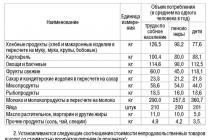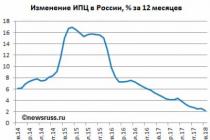
Schemes for the sale of a share in an apartment
Everyone who has had to deal with the sale of real estate knows that there are many subtleties in this matter, the observance of which is very important when making a deal. The main normative act that regulates relations in the field of real estate sales is the Civil Code of the Russian Federation. Let's start with the fact that real estate offered for sale must be privatized. Without delving into privatization as a process, we will discuss the main points. All the nuances and subtleties of housing privatization are described in the Law of the Russian Federation “On Privatization of the Housing Stock in the Russian Federation”. The law interprets privatization as a free transfer of state and municipal property into the private ownership of citizens. Only after privatization does a person become the full owner of the privatized property. Privatization should be considered as a type of acquisition of the right to an apartment. Privatization gives the right to alienate one's own property by any legal means. When answering the question of how to sell a share in a privatized apartment, it is necessary to understand the terminology used.

It is legally established that property that is in the possession of two or more persons belongs to these persons on the basis of joint ownership.
Ownership in this case can be shared (the share of each is allocated) or joint (parts are not allocated). These two types of ownership should be clearly separated, since the legal consequences of transactions with joint ownership and shared ownership are completely different. Each of the co-owners of the apartment has the right, at will, to donate, sell, bequeath, pledge the part (share) belonging to him or dispose of it in another legal way. The object of research in this article is a privatized apartment, and specifically, a share in an apartment.  Participants can dispose of an apartment that is in shared ownership only with the consent of all other participants; in case of disagreement, the procedure for alienation is established in court. An exception may be the sale of an apartment at a public auction.
Participants can dispose of an apartment that is in shared ownership only with the consent of all other participants; in case of disagreement, the procedure for alienation is established in court. An exception may be the sale of an apartment at a public auction.
So, if the question arose of selling a share of an apartment, you need to know the mechanism for its correct, legal solution, which will be described in the article.
General provisions
When an apartment privatized in shares is sold completely in one hand, the owners of the shares have reached agreement on this issue and everyone is satisfied with the amount of the transaction, then there are no problems: you just need to collect the necessary documents and make the sale in working order. The money will be divided as agreed.  If only one co-owner of a privatized apartment decided to sell his share, then here the algorithm of actions is already different. First, the seller determines the price of his share in the privatized apartment, then he offers to buy out his share to the other co-owners, since they, according to Art. 250 of the Civil Code of the Russian Federation, have the right of priority purchase of the share being sold before a third party. This suggests that the seller has the right to look for a buyer on the side only if the rest of the "participants" refused to buy. The law obliges the seller to notify the co-owners of the proposed sale in writing with the announcement of the desired price and other terms of sale. And only if the participants in shared ownership write a refusal or redeem the sold share within a month from the date of their written notification, the seller has the right to sell his share to someone who wants to buy it.
If only one co-owner of a privatized apartment decided to sell his share, then here the algorithm of actions is already different. First, the seller determines the price of his share in the privatized apartment, then he offers to buy out his share to the other co-owners, since they, according to Art. 250 of the Civil Code of the Russian Federation, have the right of priority purchase of the share being sold before a third party. This suggests that the seller has the right to look for a buyer on the side only if the rest of the "participants" refused to buy. The law obliges the seller to notify the co-owners of the proposed sale in writing with the announcement of the desired price and other terms of sale. And only if the participants in shared ownership write a refusal or redeem the sold share within a month from the date of their written notification, the seller has the right to sell his share to someone who wants to buy it.
The pitfalls of this stage are such that the co-owners of a privatized apartment regard their priority right of redemption as a “permission to sell”. Based on this, they are trying in every possible way to evade a letter of notification about the proposed sale of part of the apartment, and since the permission to sell in this case is their agreement with a written notification, the state registration of the transaction may not take place without this.
You should be aware that if the sale was registered without the fact of warning the co-owner in writing, then within three months the owner, who evades signing the document of consent to the sale, has the right to challenge the transaction, if it was made, in court in his favor. The consequences are such that the buyer of the share during this time will find a simpler and faster option for himself in order to prevent possible conflict situations in the future.  There is no approved legislative mechanism to force the signing of a consent to the sale, but there is still an acceptable legal solution for the seller. You should go to a notary who will draw up a registered letter on behalf of the seller, send it to other co-owners of the privatized apartment and wait for their reaction. In this case, they are obliged to respond, and then according to the usual scheme.
There is no approved legislative mechanism to force the signing of a consent to the sale, but there is still an acceptable legal solution for the seller. You should go to a notary who will draw up a registered letter on behalf of the seller, send it to other co-owners of the privatized apartment and wait for their reaction. In this case, they are obliged to respond, and then according to the usual scheme.
The first way is the donation scheme
One of the easiest ways to sell a share of a privatized apartment is the "workaround". The seller has the right to donate his share to someone without the consent of the other owners. Scheme of actions for the seller: 
- A donation agreement is signed. The contract must contain information about all persons living in the apartment and having the right to live there, the subject of the contract is indicated, that is, specifically - how many square meters are donated. If the buyer is not a close relative, then the donee will need to pay tax on the income of an individual (13% of the value of the gift).
- The transfer of money is carried out through a bank cell.
The deed is done, everything is done legally. Contestation of such cases is possible, but due to the absence of the fact of sale as such, a positive decision will be for the seller.
A variation of this method is possible. The seller does not give the buyer the entire part of the apartment, but only part of the share. This is followed by the sale of the whole share to the person to whom the part was donated, and since he has a legal right of priority purchase, he buys it.
The second way is a collateral scheme
- A potential buyer of a share in an apartment borrows a certain amount of money from the seller, a loan agreement is concluded, it indicates the amount borrowed and the subject of collateral in case of untimely return of money. Naturally, the subject of collateral will be a share in a privatized apartment.
- The money is not returned on time - the pledged property passes into the possession of the pledgee.
The third way is the net sale of a share in a privatized apartment 
- We evaluate the value of our share (the assessment is made subjectively - by the owner). You need to look at things realistically and understand that even the best share sold separately will be lower than the cost of a share in an apartment sold as a whole.
- We notify other owners in writing of our intention to sell our share, indicating the terms of sale and the asking price. Within a month (the term established by law), they are obliged to make a decision: either to buy a share, using the right of first refusal, or to give up this right.
- We register the refusals of the co-owners of the apartment by a notary, thereby insuring ourselves in the future, if one of them decides to challenge the transaction.
- A purchase is being made. We draw up the contract ourselves: we download a standard form on the Internet and fill it out according to our documents or contact a lawyer who will draw it up for you for a fee. The contract must specify the cost of the share, a description of the share itself and the procedure for paying for the acquired property.
- The transfer of ownership is subject to mandatory state registration.
List of documents required for the sale of a share
Documents required when privatizing a share in ownership: 
- An agreement on the transfer of a certain share into possession and a certificate of ownership of the share with the obligatory indication of the size of the share and the size of the entire apartment.
- Share agreement.
- Certificate from the BTI (it indicates the book value of privatized housing and the share of housing).
- A document from the housing department (it records the fact that there are no debts for utility bills).
- Extract from the house book.
- Copy of financial account.
- The consent of the guardianship and guardianship authorities - when minors live or are registered in the apartment.
- Identification documents of the buyer and seller.
The apartment can be owned by one owner , and a few. In the case of shared ownership, it happens that one of the owners wants to sell his share, while others do not. In the article we will tellhow to sell a share in an apartment what procedures be sure to follow what to do in non-standard situations.
Highlight your share in kind
The share in the apartment can be natural and ideal. The natural share has clear characteristics: for example, one room is assigned to the owner. Shared ownership applies to the bathroom and kitchen, that is, it has right use them. Ideal - the one that is indicated in a fractional ratio, for example, ⅓ for a two-room apartment. In this case, all owners have the right to use all the premises in the apartment.
For sale, it is better if the share is allocated, that is, the buyer will receive ownership of one or more rooms and the right to use common areas. According to Article 252 of the Civil Code of the Russian Federation, a share can be allocated in two ways: by agreement of all owners or through a court. If other co-owners agree with the allocation of a share in kind, you need to prepare an agreement and register it with Rosreestr, and then issue a cadastral passport and other technical documents. If the owners do not agree, you can go to court. For this you will need:
🔖 title documents for an apartment - a privatization agreement, a sale and purchase agreement, and others;
🔖 legal document - an extract from the USRN indicating the owners;
🔖 technical documents - acts, technical plan, cadastral passport and others;
🔖 a statement of claim for the allocation of a share in kind, indicating the defendants - other owners of real estate.
In most cases, the court takes the side of the plaintiff. If there are no violations, most likely you will receive a share in kind.
BUT Is it possible to sell a share in a one-room apartment? It is impossible to allocate a natural share in it, because there is only one living room, and it cannot be divided among the owners. In this case, you cansell a share in the apartment without allocation.The future owner will have the right to register in it and use all residential and non-residential premises. In principle, you can not allocate a share in other cases: the new owner can do this. But if you have the time and desire to get more money from the sale, it's better to go for it. People are more willing to buy a dedicated room than a share in common property.
Notify about the desire to sell the share of other owners
Sale of a share in an apartment in 2019provides for the pre-emptive right of purchase for co-owners of residential real estate. You must first notify other owners that you are going to sell your share. If they want to buy it, draw up a contract. If not, you can sell the share to an outsider.
Prepare a written notice for each co-owner. Indicate in it the property itself, the price for which you plan to sell the share, the timing of the transfer of property and the payment procedure. Then pass the notification in any way:
🔺 personally - then you will need two copies: one give to the owner, on the second he puts the date of receipt, signature, writes his last name, first name, patronymic;
🔺 by mail, by registered mail with a description of the attachment and a return receipt;
🔺 through a notary - he will issue certificates of sending documents and their delivery.
The co-owners of the apartment have a month to make a decision. If they write a waiver of the right of first refusal, get it notarized. If the co-owners do not respond to the notification in any way, you will be able to sell the housing after 30 days from the date the document is received by the owners.
Is it possible to sell a share in an apartmentif there is no way to contact the owners? Yes, but in this case you must prove that you tried to notify them of the sale. To do this, you need to provide notarial certificates or documents from the mail that you sent a letter with a notification.
Important. You must sell the share for a price greater than or equal to the price stated in the notice. If you decide to lower the price, you need to send new notifications with the current price. Otherwise, Rosreestr may refuse to register the transaction.
If you decide sell a share in a privatized apartmentwithout notifying the co-owners, Rosreestr will not register the transaction. The employee will definitely require a written refusal from the owners or proof that you tried to contact them. Even deal will be registered, the co-owners will be able to sue and declare it null and void.
find,to whom to sell a share in the apartment
You can start searching for a buyer before and after notifications. If you find buyers before, they may not agree to wait a month. If after, it will be possible to immediately draw up a contract for the sale of real estate.
There are many ways to find buyers. The most effective is to place ads on popular free sites. In the description, be sure to indicate that you are selling exactly the share, put an acceptable price. In order not to miscalculate the price, study the market in advance: find similar offers, calculate the average cost and build on it.
Prepare documents
First, check to see if you have outstanding utility bills. According to the current legislation, it is impossible to sell residential real estate with existing debts. If there is no debt, take a certificate from the Criminal Code, HOA or other structure.
When signing a sale and purchase agreement or registering a transaction with Rosreestr, you will transfer all documents for real estate to the new owner. You will also need paperwork to complete the purchase. Prepare in advance:
❗ the seller's passport - you will need it to sign the sale and purchase agreement and register the transaction with Rosreestr;
❗ legal document - an extract from the USRN indicating the size of the share or a certificate of ownership if the share was received before January 1, 2016;
❗ supporting documents for obtaining a share in property, for example, a DCT or a donation agreement;
❗ cadastral passport of a residential facility, which indicates the main characteristics;
❗ a technical plan that proves the absence of illegal redevelopments;
❗ Written waivers by owners of the right of first refusal or proof of notifications.
You can take an extract from the USRN online , through the MFC or at the nearest branch of Rosreestr. If there are no documents that can confirm the basis of ownership, you can try to restore them. If there is no cadastral passport and technical plan, issue them at the BTI or Rosreestr.
In some cases, additional documents may be required - the spouse's consent to the sale, permission from the bank or permission from the guardianship and guardianship authorities. We will discuss such cases below.
Draw up a contract of sale with a notary
Innovations in lawsoblige to draw up a contract for the sale of a share in an apartment or other real estate with a notary. This is due to the fact that it is necessary to protect the interests of all participants in the transaction - the buyer, seller, as well as co-owners of housing.
Visit the notary together with the buyer. Take with you title documents for housing, technical papers. The notary will tellHow to sell your share in an apartment, and explain what documents are still needed to complete the transaction. If everything is in order, draw up a contract of sale.
In contracts for the sale of a share in an apartment, it is usually indicated:
👉 information about the seller and the buyer: last name, first name, patronymic, registration address;
👉 information about the share - its size, the exact address of the apartment, the cadastral number of the allocated share or the entire apartment;
👉 data of legal documents - extracts from the USRN, the previous sale and purchase agreement, and so on;
👉 confirmation that the co-owners have waived the right of first refusal;
👉 the exact cost of the share, the settlement procedure for the transaction between the buyer and the seller;
👉 rights and obligations of the parties, for example, that the seller must transfer all documents for the apartment to the buyer;
👉 date of signing the contract of sale, signatures with transcripts of both parties.
The notary will draw up a contract, you will have to check it. We recommend that you do this as carefully as possible: the slightest mistake in the contract will lead to the fact that Rosreestr will refuse to register the transaction and the DCT will have to be drawn up again.
When you check the document, the notary will certify it. The notary issues the original contract to the parties to the transaction, and makes a copy for Rosreestr.
Notary services cost money. But he will immediately check whether all documents are ready for sale, report problems, and help collect a package of documents. In addition, notarization of the DCT is a requirement of the law: without it, it will not be possible to complete a transaction.
Together with the contract of sale, draw up an act of acceptance and transfer of money or a receipt. The documents will confirm that the buyer has fulfilled his obligations and paid for the share in the apartment. An act or receipt can be drawn up in any written form, but it is also better to certify them with a notary in order to avoid mistakes.
Register the contract of sale in Rosreestr
Any of the parties to the agreement can submit a notarial transaction to Rosreestr, unilaterally. Be careful: in small towns, Rosreestr accepts documents for registration personally. In large cities, you can contact the authority only through the MFC.
The following documents must be submitted to the Registry:
📃 passports of both participants in the transaction, if the buyer is present;
📃 a notarized contract of sale for a share;
📃 written refusals of the co-owners of the right of first refusal or evidence that you notified them of your desire to sell the share;
📃 an extract from the USRN confirming your ownership of the share.
An employee of Rosreestr or the MFC will accept documents, issue an inventory, and name the date for the preparation of new papers. On the appointed date, the new owner will receive the documents back on receipt and an extract from the USRN confirming his ownership.
Rosreestr employees may request additional documents to verify the purity of the transaction. Provide paperwork or visit Rosreestr in person if you are asked to do so in order for the transaction to be successful.
Pay taxes on the sale of property
According to the Tax Code of the Russian Federation, each citizen The Russian Federation must pay taxes on the income received. Selling a share in an apartment is no exception. If you do not pay your taxes on time, you may be charged interest and fines.
There are three cases in which you do not need to pay tax:
❌ The cost of a share is less than 1,000,000 ₽ for a share in kind.According to the law, the sale equity property worth less than 1,000,000 ₽ is not taxed. And if the value is higher, a tax deduction applies. For an ideal share, the deduction of 1,000,000 ₽ is divided proportionally to the share, for example, 500,000 ₽ for ½.
❌ You have owned the property for a long time.From January 1, 2016, the following rule applies. You do not need to pay tax if you:
▪ bought a share under a sale and purchase agreement and owned it for more than 5 years;
▪ received a share by inheritance, gift agreement from close relatives or as a result of privatization and owned it for more than 3 years.
❌ You bought a share and there is no difference between the purchase amount and the sale amount.If you bought this share earlier, for example, for 2,000,000 ₽ and sell it for the same amount or cheaper, you do not need to pay tax. And if the price has risen, you will have to give the state 13% of the income received.
Consider an example.
Andrey owned the share for 2.5 years and sold it for 1,700,000 ₽. When compiling a tax return, Andrey needs to declare a deduction. Then he will be able to pay tax not from 1,700,000 ₽, but from 700,000 ₽. Instead of 221,000 ₽, you get only 91,000 ₽.
Important: the declaration must be submitted to the tax office even at zero tax, if the share has been owned for less than 3 or 5 years.
What else you need to know when selling a share
A share less than the minimum cannot be sold
The legislation establishes minimum shares. So, one person cannot own a share of less than 10 m²: these standards apply in Moscow. If the area of the apartment is 48 m², it cannot be divided into 5 shares, because each person will have less than 10 m³. In other regions, the norm is 12 m² per person.
In this regard, the legislation establishes the following minimum indicators:
🔹 in apartments with an area of 30–60 m², shares of at least ¼ can be sold;
🔹 in apartments with an area of 60-120 m², you can sell at least 1/10 of the share;
🔹 in apartments with an area of 132 m² or more, you can sell at least 1/15 of the share.
If these conditions are not met, Rosreestr will refuse the transaction. You will not be able, for example, to sell some part of your share if it is 15 m². In this case, you or the seller will have less than 10 m².
If one of the owners is a minor
How to sell a child's share in an apartment? If one of the shares is owned by a minor, to complete the transaction, you will additionally need permission from the guardianship authorities, as well as the refusal of the minor - it can be written by parents or guardians. You need to contact the guardianship authorities when you have already found a buyer: the state structure considers each case separately. If guardianship does not give permission, the share cannot be sold.
If you decide to sell the share of a minor, you will have to provide him with housing no worse than the previous one in terms of conditions. For example, buy a share in another apartment.
Remember: if one of the shares is owned by a child, take permission from guardianship. If you plan to sell his share, you will also need permission. Additionally, you will need to provide the child with property no worse.
If the apartment was bought with a mortgage
Is it possible to buy a share in an apartmentor sell it if the housing is under the encumbrance of the bank? Technically it is possible, but the deal will last much longer.
You will need to get permission from the bank. The apartment acts as a pledge, and if the borrower defaults, the bank can sell it and get the money back. Specific ways to resolve the situation depend on the bank. For example, if the owner has repaid almost all of the loan, the bank may remove the encumbrance and allow the sale. If you have just started paying, a financial institution can reissue a loan agreement for a new owner or resolve the issue in a different way.
If you are married
If the owner is married, he needs to get agreement for sale from a spouse. This applies only to property purchased in marriage with jointly acquired funds. Consent is made in writing. Most often it needs to be notarized.
Without the consent of the spouse, Rosreestr may refuse to register the transaction. Even if the ownership is re-registered, the spouse can later go to court and recognize the transaction as voidable.
Spousal permission is not required for the sale of property purchased before marriage or acquired through a gratuitous transaction.
If the share is registered in a joint own spouses, the consent of the second spouse is not required for the sale. The fact is that both will participate in the sale and purchase transaction and sign the contract.
If the spouse owns another share in the apartment, then the procedure is standard: you simply send a notice with an offer to buy a share in the property. A written refusal will be tantamount to consent to the sale. Rosreestr will register the transaction without requesting additional documents.
If the owner has exercised the right of first refusal
Sale of a share of the apartment to the second owner- the optimal solution that will require a shorter time to complete the transaction. If a owner the other share agrees to redeem yours, no need to wait 30 days. You can immediately go to a notary, draw up and certify a contract of sale and register it with Rosreestr.
If two owners agree to buy a share
Let's say you own ½ an apartment. But there are still two shares - two people have ¼ each. You sent them a notice of sale, and both agree to buy your share of the property.
How to sell half of an apartment if there are two ownersand both agreed? What to do in this case? You have three options:
💡 organize a meeting of all shareholders and agree peacefully;
💡 sell a share to the one who first agreed to the purchase, but the second owner can challenge the decision;
💡 divide your share between both owners, then they will have ½ of the apartment;
💡 independently decide which of the owners to sell their share.
In practice, this situation is rare, but in any case, a compromise will have to be sought between all owners.
Sale of part of the share
Sometimes you need to sell part shares. For example, you own ½ an apartment of 150 m² and want to sell the property, but retain the right of registration and ownership of real estate . Then you can break your share into smaller ones and sell them to the buyer. For example, sell him ¼ and stay with ¼, or sell 4/10 and keep 1/10
Basically, shared ownership is common in metropolitan areas. After the privatization of a communal dwelling and its “partition”, from two to seven people can become owners of such real estate.
In addition, these may be complete strangers, relatives (children and parents) or persons who have lost their relationship (ex-husband and wife). Sooner or later, one of the co-owners of housing will wish to "disperse" and sell their share. And here many difficulties begin to arise. How to sell a share in an apartment on favorable terms? Let's take a look in detail.
Allotment of a share
To sell your share, you must complete a number of procedures. Without the consent of the other co-owners, it will not be possible to register new guests or even make repairs. And it will also be quite difficult to sell or rent part of the dwelling.
Meanwhile, it is still possible to sell a share in a privatized apartment. True, for this you will have to go through such a troublesome procedure as the allocation of a share. This means that after the privatization, each of the co-owners owns a mandatory certain share.
It can be expressed as a fraction. For example, a two-room apartment has two owners, the share of each of them is ½. If we talk about a share in kind, it turns out that each person owns one of the rooms, and they will own common areas (kitchen, corridor, pantry) jointly. Moreover, after the allocation of a share, they will also have the right to use the above premises. In this case, the share of each becomes personal, and the neighbors will remain co-owners.
Joint property can also be divided. This is, as a rule, a complex and lengthy process, after which the common property will be canceled, and only one person will become the full owner.

Registration of the procedure
The allocation of a share is drawn up by a notary, no oral agreements, of course, will have legal force. At the same time, if the co-owners do not come to a common decision, then this issue must be resolved only through the courts. As a rule, the claim is filed by the owner who wishes to carry out the procedure for allocating a share. Litigation can drag on up to six months or longer (especially if other participants do not go to meetings).
Sale of part of the apartment
After the allocation of the share, the owner has the right to sell it. But before doing this, it is necessary to offer to redeem your part to other owners. By law, before selling a share in an apartment, other owners should definitely send a written notice with a proposal to make a purchase.
This document indicates the cost and technical characteristics of the dwelling. The co-owners can make a decision on the purchase of your share within a month after reading the letter. That is, during this period they must either accept your offer or refuse to purchase.
To avoid any misunderstandings, such proposals must be sent by registered mail. After all, if in the future, for example, the owners declare in court that they did not receive any notification, then you can provide evidence.

Important nuances
Many uninformed citizens often ask: “Is it possible to sell a share of an apartment if the neighbors are against it?”. For some reason, many believe that other owners can really interfere with the process of selling their part of the home. In fact, this is not so, all you have to do in relation to other co-owners is to notify them of your intention to sell the apartment. If they do not agree to the purchase, then this does not give them the right to prohibit the sale of the share to other persons.
After 30 days have passed since the acquaintance of the neighbors, you have the right to transfer your part to anyone. But remember: the price must strictly correspond to the one that you specified in the notification letter to the co-owners (no less and no more). If you decide to sell a share in a privatized apartment at a different price, then any of the neighbors will be able to challenge such a deal in court within three months.
Deed of gift instead of contract of sale
Some sellers in this case decide to go to the trick. In order not to carry out the procedure for notifying neighbors, they simply draw up a deed of gift. With this type of transaction, it is not necessary to notify neighbors at all, and the execution itself will be cheaper and faster.
But there are pitfalls here too: if you donate your share to a person who is not your relative, then the co-owners can challenge such an agreement. And even if the neighbors fail to establish that a sale and purchase transaction took place instead of a donation, then the fact of the absence of family ties, in principle, is not so difficult to prove. Before selling a share in an apartment, it is important to agree with the buyer about all the important points. In particular, discuss the payment procedure, for example, you can sell with a deferred payment or in installments.

How to sell an apartment with a share of a minor?
If a minor is registered in the apartment, then it all depends on whether he is the owner of the housing or not. If a share belonging to him is put up for sale, then in order to be able to sell it, he will have to obtain permission from the guardianship and guardianship authorities. In all other cases, the same pre-sale preparation takes place. However, the offer to purchase is not sent to the child, but to his parents or guardians.
Of course, other owners will also have to send a notification letter. If relations between neighbors are normal, then you can simply discuss this issue with them, and then draw up a notarized refusal of each co-owner from the purchase. If the owners refused to purchase your share, but you changed the price, they will again have to be notified in writing about this again and expect a response within a month.
Disposition of the child's shares
If it is necessary to sell the child's share in the apartment, then his parents must obtain consent to the sale from the guardianship authorities. Moreover, such a structure needs to submit documents stating that the conditions for the child's living will not worsen, and he will not be left without housing.
That is, you will be required to submit documents for an apartment that you are going to buy in exchange, or for a share in a dwelling (the size must be no less than the child had before). Instead of papers for a new apartment where the child will live, they may require an open bank account in the name of a minor citizen or other evidence. In all other respects, in order to sell the child's share, you will have to perform all the same steps that have already been described above.
Other share sale options
It is worth noting that you can dispose of your share, even if it is an uninsulated room. That is, theoretically, a person has the right to sell a share in a one-room apartment. The law does not prohibit such transactions. However, in practice, such an operation is quite difficult to perform.
And the price for such square meters will be purely symbolic, because hardly anyone wants to share one living room, where another completely stranger lives. In this case, it is better to negotiate with another co-owner to sell the entire property, or offer him to buy out your share. If the neighbor does not agree to such options, then this problem will have to be solved only through the courts.
It is much easier to sell 1/2 share of the apartment if the dwelling has 2 or more isolated living rooms. Of course, in this case, the price for real estate will be lower all the time, but if necessary, buyers for this option can be found.
Underwater rocks
Realtors note that in the process of selling a share, many difficulties can be encountered. First of all, this may be due to the fact that some co-owners confuse the concepts of "primary buyout" with "permission to sell." For example, they may avoid receiving a letter of notification of the sale of a share, and it is not possible to register a transaction without their written refusal. Unfortunately, the Civil Code does not say anything about what to do if the neighbors do not meet.
It is also noteworthy that it is impossible by law to oblige other co-owners to sell a share in an apartment. Trespassing on the private property of others is a criminal offence. Therefore, it is possible to agree on the redemption of the shares of other owners by you only amicably.
There are also situations when several co-owners immediately want to buy out the offered share. If this happens, then the seller himself can choose which of them to transfer his share.
Cost estimate
If, despite all the difficulties, you still decide to sell a share in a privatized apartment, then you should start assessing its value. The following factors will affect the price:
the number of rooms in the dwelling;
The location of the house
The area of the apartment
market segment, etc.
Naturally, the owner has the right to set the cost of the room (rooms) himself, but practice shows that its cost will be 30-40% lower than its market price. If you decide to sell part of the share in the apartment, then get ready for the fact that this will be even more difficult to do.
Cons for the buyer
The lower price is a completely legitimate “compensation” for possible conflicts with neighbors. After all, quite often other co-owners are not very happy with new tenants. There are also situations when neighbors generally put new locks on the front door.
In this case, the person will have to apply to the court with a claim for access to the use of the apartment. In the court, of course, they will take the side of the victim, and the new owner will be able to return to his house with the bailiff. However, if the co-owners begin to constantly "dirty", then it will be very difficult to live in such an environment. In connection with this, the price of a share in an apartment will always be about a third cheaper than its market value.
conclusions
So, how to sell a share in an apartment? In principle, if all the requirements of civil law are followed, then there should not be any particular difficulties. The most important thing is not to forget to offer to buy out your share to other co-owners. If they refuse, then the co-owners must issue a notarized refusal about this. If the share that is put up for sale belongs to the child, then you will also have to obtain permission from the guardianship and guardianship authority. You may also sell part of your share.
And the last thing: you can sell a room only if it has been privatized, and the owners own the dwelling on the basis of shared ownership.
When a whole apartment is divided into rooms, or even into separate square meters, it is difficult to get rid of the thought that all this will not end well. However, new rules have been in effect on the share market for more than a year, and transactions have become much safer.
Six or seven years ago, schemes for the sale of a share in an apartment were unequivocally associated with fraud by many. And not without reason: with the help of a fictitious donation of a share, unscrupulous realtors quite often circumvented the current legislation, especially with regard to the room market.
BYPASS HARDER
Today, these fears, without exaggeration, can be called irrelevant. Back in 2015, a rule was introduced, according to which all transactions for the alienation of shares for compensation must be notarized without fail. And in June last year, the legislation was further tightened: since then, any change in the ownership of real estate shares must be formalized only through a notary. As a matter of fact, one can already forget about “pseudo-gifting” since then.
The first thing the notary must do is make sure that all co-owners of the apartment are properly informed about the upcoming sale of a share in it. After all, they have the primary right to redeem it. The notice must include the value of the share, and below this amount it cannot be sold. Otherwise, the transaction can be challenged in court.
Co-owners who do not intend to acquire a share must issue a corresponding refusal at a notary's office.
An offer to purchase a share can be sent by mail with acknowledgment of receipt. If no response is received within a month, the seller has the right to sell his share to any person.
Of course, there are difficulties: it is far from always possible to find out the location and address of one or more neighbors, especially if they live in another city or even a country. It is especially difficult for owners of rooms in former departmental dormitories, where co-owners can easily run into dozens.
Precisely in order to make life easier for themselves, many sellers of shares in an apartment resorted to a simple trick: they “donated” a small part of it (it could well be even one square meter), after which the buyer became the same co-owner of the apartment in the eyes of the law and received the right for the priority purchase of the remaining squares. Often the thoughts of both parties to the transaction were completely pure and there was no need to talk about any raiding. Although there were also reverse examples.
Now it is unlikely that such a scheme will be able to turn: the notary is obliged to make sure that the donation agreement does not mask another transaction - the sale. It is quite difficult to deceive him, since he personally answers before the law. For which he receives his fee: 0.5% of the value of the object, but not more than 20 thousand rubles.
If the notary refused to register the transaction, you can, of course, go to court. But it is unlikely that people will go there whose intentions were originally unclean. But it has become even more convenient for conscientious participants in the transaction to complete it through a notary: he himself can form a package of documents and send them to Rosreestr, and in electronic form, which greatly speeds up the process of its registration.
WHAT IS A SHARE
Now, perhaps, let's define the terms, more precisely, with one: what is a share in the legal sense? The Civil Code of the Russian Federation gives an answer to this question in Article 244: property owned by two or more persons belongs to them on the basis of common ownership. At the same time, the share of each of the owners can be allocated and then the property will be in shared ownership, but you can not do this, then it will be joint ownership.
By the way, this is the most common option today. After all, more than 80% of residential real estate in large and medium-sized cities of the country is in common ownership.
It is a misconception that in St. Petersburg the shares are owned exclusively by residents of communal apartments in the historical center. Even new buildings that have been commissioned quite recently can be collective property. The most typical situations are the divorce of spouses who jointly purchased an apartment (as you know, every second marriage in Russia, alas, ends that way) or the death of the owner and the subsequent entry of his relatives into inheritance rights.
As for the older Soviet-built houses, the main reason for the emergence of joint ownership is the privatization of housing. Slightly smaller market volume - hereditary shares.
WHO BUYS SHARES
It would seem that a share in an apartment, especially a small one, is such a specific commodity that it is very difficult, if not impossible, to find a buyer for it. However, there are certain categories of citizens who are interested in this type of property. First of all, these are non-residents who acquire a share in order to “take root”, that is, to obtain registration. This greatly simplifies life - and it is easier to find a job, and get a mortgage loan in order to buy a full-fledged housing.
It is worth noting that with the adoption of the law on “rubber apartments”, only the owner of a share, the size of which exceeds 4 sq. m.
Accordingly, smaller shares of the market have by now almost disappeared. But great demand is found primarily due to the low cost - from 200 thousand rubles.
The second category of buyers includes those who acquire a share for the purpose of actual residence. As a rule, these are people who do not have enough money to buy a room in a communal apartment, but they cannot or do not want to rent housing. True, those shares where you can really live are already much more expensive - from 450-500 thousand rubles. This price tag refers to those objects in which it is impossible to determine the order of use with linking the share to a specific room. These are, for example, studios and one-room apartments. If, in principle, it is realistic to do this, then such shares (and in fact - rooms) are sold for 60-70% of the market price of this very room.
Finally, a significant part of the shares is bought out by professional realtors, who expect to subsequently buy out the entire apartment as a whole, and then resell it. But even if this does not work out, the realtor can determine the procedure for using the common property, allocate a room in this way and sell it already. And thus he will still receive his profit.
Determining the order of use is the actual binding of a share to one of the rooms. If, for example, the owner owns 1/2 of a two-room apartment, he can either, by voluntary consent of the other owners (with a notarized certificate), or by a court decision, determine that his property is not just an abstract share, but a specific room. True, it must be borne in mind that he can apply for living space only if the footage of the share is equal to the footage of the room or exceeds it.
EXPERT OPINION
Igor Abolemov, General Director of the Doli.ru Academy of Sciences:
- The ideal option, allowing the owner of the share to get the maximum price for his object, is to agree with the other owners and share the proceeds from the sale of the apartment as a whole.
But this is not always possible.
The timing of transactions with shares of an apartment depends on the current situation. In the shortest possible time, you can sell or buy shares, provided that all owners have come to an amicable agreement. In the event of conflicts, the deadlines may be extended indefinitely.
In this case, the simplest thing is to sell your share through an agency that specializes in these issues, has professional lawyers and well-established work schemes.
The sale of a share in an apartment to another owner is carried out according to special rules requiring compliance with special formalities. The legal status of shared ownership implies the obligatory consideration of the opinions of other equity holders when alienating part of the residential premises, with the exception of individual cases.
Legal status of the owner of a share in the apartment
The fact that citizens have the right to own a dwelling, as a general rule, provides them with the opportunity to dispose of property at their own discretion. For the share form, this possibility is significantly limited by the following features:
- the contract for the sale of a share in any case requires notarization;
- paid alienation obliges the seller to notify in advance the other equity holders who have a pre-emptive right to redeem;
- gratuitous alienation of a share does not require agreement with other owners.
Thus, any agreement on the disposal of shared ownership will need to be certified in a notary's office, and when selling, it is necessary to follow the procedure for notifying the other owners of the property. This procedure applies to each shareholder, regardless of the size of the share and the grounds for its acquisition.
Step-by-step instructions for selling a share of a residential property
To start the process of selling a share, the owner must determine the price and terms of the upcoming transaction, as this will directly affect further formalities.
The terms of the sale and purchase agreement are determined between the seller and the buyer, the other owners of shares do not have the right to influence the negotiation process.
First stage. Determination of the terms of the transaction between the seller and the buyer
To complete the transaction, the parties will need to reach agreements on the following conditions:
- the subject of the contract is a share in the common right to a dwelling (it is necessary to describe not only the legal characteristics and the size of the share, but also record the data of the property in detail);
- contract price and payment terms - the full amount that the seller will receive for the alienated share, as well as the procedure for receiving funds, is indicated;
- other terms of the transaction on which the counterparties have reached agreements.
It is these conditions that will be used in compliance with the subsequent procedure for agreeing on the fact of sale with other equity holders.
Second phase. Notification of co-owners about the sale of a share
The ability to sell a share on the terms fixed in the agreement directly depends on compliance with the procedure for notifying other equity holders, as well as the outcome of this procedure. Violation of the rule on mandatory notification may result in the recognition of the transaction as invalid at the claim of the person concerned.
Notification upon the sale of a share must be carried out taking into account the following features:
- each owner of the right of shared ownership in the apartment must be sent a notice indicating the detailed terms of sale, including the price of the contract;
- such notice must be sent even if the acquirer under the agreement is one of the owners of the shares;
- within the period specified in the notice, but not later than one month from the date of its receipt, the owners of other shares have the right of first refusal.
Since the legally significant consequences for the participants in the transaction depend on the order in which the notification is sent, it must be drawn up in writing. The content of this document should include the following elements:
- the name of the addressee of the notification;
- notification of the fact of the upcoming transaction;
- description of the conditions under which the share will be sold (including the price of the sale and purchase agreement).
Note! In this document, it is not necessary to indicate the buyer's data, as this has no legal significance.
This document must be handed over against signature, or may be sent by mail with acknowledgment of receipt. The seller is obliged to have such a document for presentation in the event of a possible litigation.
Receipt of the notification gives each co-owner the right to acquire the alienated share on the same terms that were specified in the agreement. In this case, after the delivery of the document, the seller is not entitled to change the terms of sale upwards.
After the notification is delivered, the rest of the shareholders have a month to express their attitude towards the upcoming deal. In this case, the following scenarios may occur:
- during the specified period, none of the co-owners will express their opinion and will not respond to the notification - the transaction can take place on the conditions specified in the contract;
- co-owners can immediately respond with a waiver of the pre-emptive right to purchase a share - the transaction can take place immediately after receiving an official refusal;
- one or more equity holders can exercise their right and demand to conclude a sale and purchase agreement with them - in this case, the initial transaction cannot take place, the alienation will be carried out in favor of one of the owners.
Note! The absence of any response after one month, as well as an official waiver of the pre-emptive right to purchase, allows the seller to complete the transaction only on the terms that were specified in the notification.
If, as a result of consideration of the notification, the seller reduces the price of the contract, or changes other essential terms of the transaction, it will be necessary to re-perform the entire procedure. If this requirement is not met, the transaction may be invalidated.
Consent to the preferential acquisition of a share may be expressed simultaneously by several citizens. In this case, each of them has the right to receive a part of the alienated share.
Third stage. Notarization of the contract
The law provides that any alienation of shares must be accompanied by a notarization of the contract. Without compliance with this requirement, it will be impossible to register the transaction with the Rosreestr authorities.
To fulfill this obligation, the seller and the buyer must apply to any notary office. In their presence, the notary will check the terms of the transaction, as well as compliance with the requirement to notify the other equity holders.
Based on the results of the verification of documents, the notary will certify the purchase and sale agreement with his signature and seal, and will also enter information about this fact in the register of notarial acts. After performing these actions, the parties can apply for state registration of the transfer of ownership.
Fourth stage. State registration of the transaction
The transfer of ownership of the share of the apartment can take place only from the moment the transaction is registered and information is entered into the USRN. To do this, the seller and the buyer of the share must apply to one of the following authorities:
- establishment of Rosreestr;
- Multifunctional Center.
Before applying for registration, the parties must pay a state duty in the amount of 2,000 rubles. A supporting document will need to be attached to the registration application. In addition, contractors must submit the following documents:
- a contract for the sale of a share with a notarization mark;
- cadastral passport for residential premises;
- the consent of the seller's spouse, if the share was acquired during the period of family relations;
- notification of other equity holders about the upcoming sale;
- official waiver of the pre-emptive right to purchase a share;
- general passports of the participants in the transaction.
In addition to a personal appeal, the parties can complete all the formalities through a representative. To do this, you need to issue a notarized power of attorney.
After the registration activities, information about the transfer of ownership of the share is entered into the USRN, and a registration mark is put on the sale and purchase agreement. The following documents are issued to the parties:
- an extract from the USRN confirming the ownership of the new owner of the share;
- cadastral passport for the object;
- registered contract of sale.
From this moment, the transaction is considered completed, and the ownership right is registered.
Legal consequences of the sale of a share in an apartment
After registering the transaction with Rosreestr, the new owner has the whole range of rights and obligations in relation to part of the residential facility, like the rest of the owners. In addition to the right of ownership to a share, the right to a part of the common property of the apartment is simultaneously acquired. At the same time, joint use of housing should not violate the rights and legitimate interests of other owners.
The seller will need to settle tax liabilities after receiving income from the sale of shares. For this, the following circumstances must be taken into account:
- if the ownership of the share lasted more than three years, personal income tax is not payable;
- if such period does not exceed three years, income tax is paid at the rate of 13%, if the amount received from the transaction exceeds the purchase price of the share;
- in the event of an obligation to pay tax, the seller can use the property deduction in the tax authorities.
For the new owner of the share, at the same time, an obligation arises to pay tax on the property of individuals, which will be calculated based on the cadastral value of the object. In addition, the owner will be required to pay contributions for the overhaul of the apartment building in which the apartment is located.














